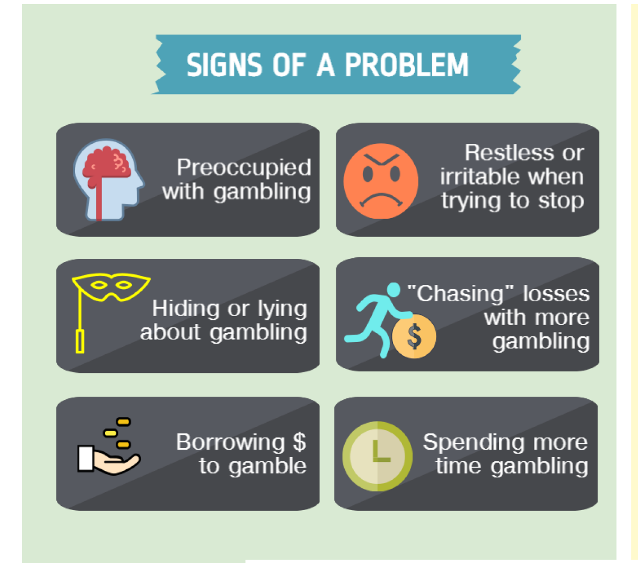No Gambling At Work Policy
Ever wondered if your March Madness office pool is harmless fun or an illegal gambling ring? Could you be prosecuted for participating? The smell of freshly-pressed bracket sheets fills the office air. The water cooler talk of upsets, sure things, and Cinderella stories remind us that March Madness, college basketball's championship tournament, is here again.
No Gambling At Work Policy Texas
State gambling laws outlaw games, bets, or wagers that are at least partially dependent on some element of chance. If a game or competition that gives prizes to winners is based on skill, such as a car race or a shooting competition, it is not considered gambling. The Department of the Treasury and the Federal Reserve Board issued a joint regulation to implement the Unlawful Internet Gambling Enforcement Act (UIGEA). The Act prohibits persons engaged in the business of betting or wagering from knowingly accepting payments from another person engaged in unlawful Internet Gambling. Even if there happens to be no legal or policy issues at stake, the harm has to do with how stakeholders would view the business if on-the-job gambling activities were revealed. 'If the stakes are high, the result of the pool could create disharmony in the workplace, and the problems could escalate,' says employment law expert B. The workplace should be no fun for anyone and be neglecting a policy is a violation. You are advised to mend your way and abide by the rules. If an employee is caught involved in betting during working hours or found using job-related assets for that, the employee will be put in danger for the suitable penalizing stroke possibly leading to the. Thousands of work-related accidents, resulting in more than three days off work are reported to the Health and Safety Authority each year. Work-related diseases and ill-health are more difficult to measure due to their long latency period but result in excess of one million days lost at work each year. These accident and ill-health.
No Gambling At Work Policy Template

by Maynard Ontario
updated July 17, 2014 · 3min read

Ever wondered if your March Madness office pool is harmless fun or an illegal gambling ring? Could you be prosecuted for participating?
No Gambling At Work Policy 2019
The smell of freshly-pressed bracket sheets fills the office air. The water cooler talk of upsets, sure things, and Cinderella stories remind us that March Madness, college basketball's championship tournament, is here again.
No Gambling At Work Policy 2020

No Gambling Policy At Work
For many Americans, the March Madness office pool is a sacred tradition. According to online gambling site LazerWager, 2008 March Madness office pools were worth more than $2.5 billion with 27% of American employees participating. But while you study the match-ups and make your picks, you may be asking yourself: 'Is my office pool legal?'
In short: No. Betting on college sports is legal only in Nevada, where it now brings in more than $600 million a year. Though the FBI may not be conducting 24-hour surveillance on your cubicle, participating in or organizing inter-office gambling, like all unlicensed sports betting, is illegal. In most states, involvement in such pools can result in a misdemeanor charge and up to one year in prison.
In reality, the likelihood of facing prosecution for participating in an office betting pool as an employee or employer is virtually nonexistent. Employers, however, face significantly higher risk than employees. And if you're the company owner, the liability risk may be more than you're willing to accept. Many bosses and owners may laugh at the fact that their 'little office pool' is actually illegal. And although the risk of prosecution is low, if you own the company, you need to be aware that March Madness can pose serious legal liabilities.
Though you may have to be the party pooper, it is up to the company owner to set certain rules regarding gambling at work. A clear, concise section in your company's employee handbook should explain the legalities involved in inter-office betting. If you decide to prohibit or restrict gambling at the workplace, explain both the workplace and legal consequences so employees are aware that you take the issue seriously.
If you own the property where your workplace is located, you have even more liability risk. The owner of the premises where gambling is conducted is subject to the same criminal liability as the organizers and participants whether or not he or she is involved in a single bet.
The other side of the coin is that office pools usually carry low bet amounts and can create camaraderie among employees. The possibilities of long-shots and underdog victories make March Madness one of the most exciting events in sports; even non-sports fans are easily swept up in the enthusiasm. Following a team, trash-talking with friends, and putting a little money down add to the fun and can help foster a sense of community among employees.
If you do decide to organize or allow an office pool, you can reduce your liability risk by keeping the stakes low and separating gambling and work. Avoid online brackets and keep your pool on paper. Prevent disruption at work by prohibiting game-watching over the Internet and encouraging pool participation only during breaks and lunch. Rather than using the typical buy-in bracket model, allow everyone to participate for free and simply provide prizes for the winners. Organize after-work parties to watch the games together. Make it fun—you may be able to build camaraderie without the added risks.
Good luck with your brackets!